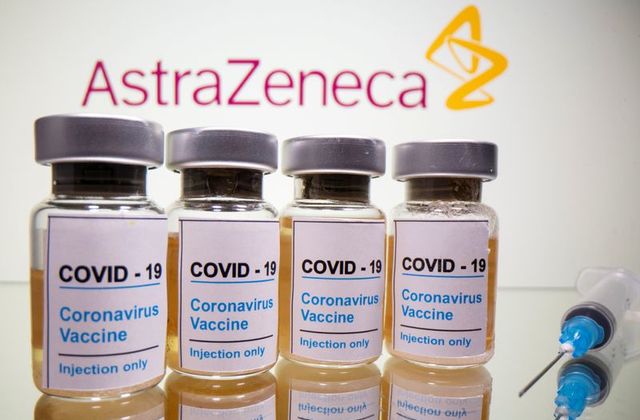LONDON/MANILA, (Reuters) – Britain gave AstraZeneca’s COVID-19 vaccine a vote of confidence today when it asked its regulator to assess the shot for a rollout after experts raised questions about trial data and the company said it may run another study to gauge efficacy.
The UK government has secured 100 million doses of the vaccine, developed by AstraZeneca and Oxford University, the most it has ordered of any shot to fight a pandemic that has killed more than 1.4 million people globally.
The British drugmaker expects 4 million doses to be available in the country by the end of next month, and Health Secretary Matt Hancock aims for a rollout to begin before Christmas.
“We have formally asked the regulator to assess the Oxford/AstraZeneca vaccine, to understand the data and determine whether it meets rigorous safety standards,” Hancock said.
“This letter is an important step towards deploying a vaccine as quickly as safely possible.”
Britain’s Medicines and Healthcare products Regulatory Agency (MHRA) started an accelerated “rolling review” of the vaccine at the start of this month as data comes in on safety and efficacy.
In the global race to develop vaccines against COVID-19, AstraZeneca’s candidate is viewed as offering one of the best hopes for many developing countries because of its cheaper price and ability to be transported at normal fridge temperatures.
Officials in the Philippines said on Friday they would secure 2.6 million AstraZeneca shots – the country’s first supply deal for a COVID-19 vaccine – and were negotiating a possible purchase of a further 1 million doses.
The announcements came after some scientists raised doubts about the robustness of results showing the shot was 90% effective in a sub-group of trial participants who, by error initially, received a half dose followed by a full dose.
AstraZeneca had released trial data on Monday that showed its experimental vaccine prevented on average 70% of COVID-19 cases in late-stage trials in Britain and Brazil.
While the success rate was 90% in the sub-group, some experts said the relatively small number of participants made it harder to be confident in the findings.
AstraZeneca said the administering of the half dose had been reviewed and approved by independent data safety monitors and the UK regulator, adding that the regulator publicly confirmed there was “no concern”.
The success rate of 62% when the full dose was given twice, as it was for most participants, is still above the 50% required by U.S. regulators. Europe’s drug regulator has said it will not set a minimum level of efficacy.
If a vaccine has an efficacy of 50%, it means that if 100 people who haven’t been exposed to the virus are immunised with it, on average, 50 of them would not get infected.
CEO Pascal Soriot said on Thursday, though, that the drugmaker was likely to run an additional global trial to assess the efficacy of its vaccine using the lower dosage.
A spokesperson for Oxford University said additional data from international trials would help researchers assess the vaccine’s efficacy among a more diverse population.






